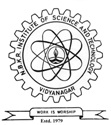|
Employer Survey
Alumini Survey
Employee Survey
The Electrical & Electronics Engineering Department was established in the year 1979 with an intake of 20. The intake was increased to 30 in the year 1981 and subsequently to 60 and 120 in the years 1987 and 2024 respectively.
Programs offered by the Department:
|
S.No
|
Name of the Course
|
Name of the Branch
|
Intake
|
|
1
|
B.Tech
|
EEE
|
120
|
The B.Tech degree programme has been accredited by National Board of Accreditation(NBA) persistently for 5th time under Tier-1 for its standard outcomes and credibility maintained.
The Department is continuously involved in Research & Development activities and has been formally recognized as Research Centre by JNTU Anantapuram from year 2015. This laid a firm platform for various research opportunities in the diversified fields of Electrical & Electronics Engineering.
It works in collaboration with Prime Meiden Ltd, an Indo-Japanese and signed a Memorandum of understanding for a skill transfer program of its students from year 2017.
An appreciable grants from AICTE , of Rs 6 lakhs under MODBOBS scheme and Rs 2.78 lakhs under STTP scheme were received by the department in the year 2013-14 & 2018-19 respectively.
In addition, an effective role is being played by the department in actively monitoring and maintaining a solar power plant of 300kw capacity with in the campus.
Well qualified and highly experienced faculty is a big assert to the department with 7 doctorates & 7 researchers pursuing Ph.d. It owns outstanding faculty members contributing towards the overall professional and personal growth of the students.
The Department continuously strives for emphasizing qualities of excellence, commitment, creativity of its students in all the endeavors and maintains a distinct link with the leading corporate sectors and well connected alumni network. With the advent of Autonomous status, the course pattern is often revised to match the current needs of the industries. The curriculum is updated on regular basis as per the guidelines of Board of Studies (BOS).
VISION
To impart quality education and research with professional values & ethics to cater the industrial and societal needs.
MISSION
M1:To enhance students skills by implementing modern curriculum through collaborative industry institute interaction.
M2:To provide with modern tools to enhance innovative research.
M3:To create human resources in electrical engineering to contribute to the nation development and improve the quality of life.
M4:Imbibe values and ethics for a holistic engineering professional practice.
PROGRAM EDUCATIONAL OBJECTIVES(PEO's)
PEO1.To inculcate basic knowledge in Humanities and Sciences, Fundamentals of Computer Programming besides essential knowledge of electrical and electronics engineering.
PEO2.To apply the principles, concepts and skills of electrical and electronics engineering for research and development.
PEO3.To imbibe professional values, ethics, leadership, teamwork through co-curricular and extracurricular activities for a wholesome personality and for effective engineering practice.
PEO4.Engage in continuing professional growth through higher education or professional activity.
PROGRAM SPECIFIC OUTCOMES(PSO's)
1.Skilful to analyze, design, and implementation of control techniques to conventional and non-conventional energy systems.
2.To prepare students well to have successful careers in multi- disciplinary global industry and to meet the technological challenges of the future.
3.Demonstrate the ability to effectively work in a team, communicate correctly and develop an ethical attitude and concern for society and environment.
PROGRAM OUTCOMES(PO's)
1.Engineering knowledge:Apply the knowledge of mathematics, science, engineering fundamentals, and an engineering specialization to the solution of complex engineering problems.
2.Proble Analysis:Identify, formulate, review research literature, and analyze complex engineering problems reaching substantiated conclusions using first principles of mathematics, natural sciences, and engineering sciences.
3.Design/Development of Solutions: Design solutions for complex engineering problems and design system components or processes that meet the specified needs with appropriate consideration for the public health and safety, and the cultural, societal, and environmental considerations.
4.Conduct Investigations of Complex Problems:Use research-based knowledge and research methods including design of experiments, analysis and interpretation of data, and synthesis of the information to provide valid conclusions.
5.Modern Tool Usage:Create, select, and apply appropriate techniques, resources, and modern engineering and IT tools including prediction and modeling to complex engineering activities with an understanding of the limitations.
,
6.The Engineer and Society: Apply reasoning informed by the contextual knowledge to assess societal, health, safety, legal and cultural issues and the consequent responsibilities relevant to the professional engineering practice.
7.Environment and Sustainability:Understand the impact of the professional engineering solutions in societal and environmental contexts, and demonstrate the knowledge of, and need for sustainable development.
8.Ethics: Apply ethical principles and commit to professional ethics and responsibilities and norms of the engineering practice.
9.Individual and Team work:Function effectively as an individual, and as a member or leader in diverse teams, and in multidisciplinary settings.
10.Communication: Communicate effectively on complex engineering activities with the engineering community and with society at large, such as, being able to comprehend and write effective reports and design documentation, make effective presentations, and give and receive clear instructions.
11.Project management and Finance:Demonstrate knowledge and understanding of the engineering and management principles and apply these to one’s own work, as a member and leader in a team, to manage projects and in multidisciplinary environments.
12.Life-long learning: Recognize the need for, and have the preparation and ability to engage in independent and life-long learning in the broadest context of technological change.
Head of the Department
Dr. S. SURESH REDDY
| For Admission(2023-24) |
| Dr.C. Raveendra Reddy,Professor & H.O.D of Science & Humanities |
9440276628, 9441572755 |
|

